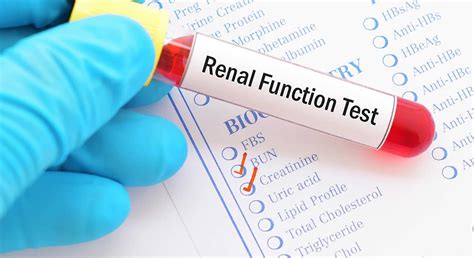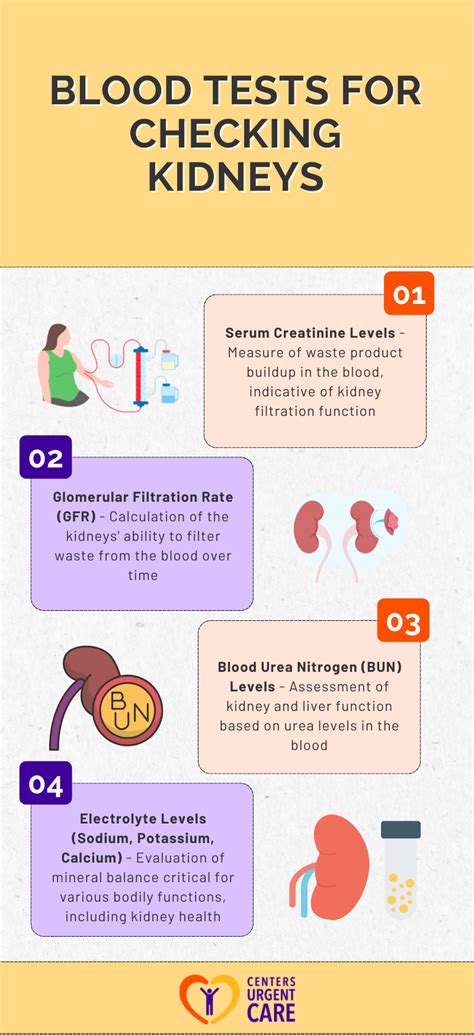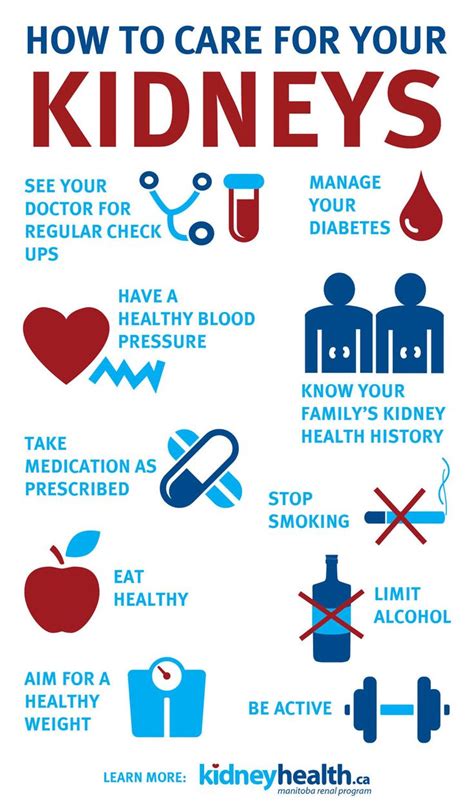Intro
Discover 5 essential kidney test tips for accurate diagnosis, including preparation, understanding kidney function, and recognizing signs of kidney disease, to ensure optimal renal health and prevent kidney damage.
Kidney tests are a crucial part of diagnosing and managing kidney disease, as well as other conditions that affect the kidneys. The kidneys play a vital role in filtering waste and excess fluids from the blood, and any issues with kidney function can have serious consequences for overall health. Understanding the different types of kidney tests, how they are performed, and what the results mean can help individuals take an active role in their healthcare.
Kidney disease is a significant health concern worldwide, affecting millions of people. It can be caused by a variety of factors, including diabetes, high blood pressure, family history, and certain medications. Early detection and treatment are key to preventing the progression of kidney disease and reducing the risk of complications. Kidney tests can help identify problems early on, allowing for timely intervention and management.
The process of preparing for and undergoing kidney tests can seem daunting, especially for those who are unfamiliar with medical procedures. However, being informed and prepared can make a significant difference in reducing anxiety and ensuring that the testing process goes smoothly. Whether it's understanding the different types of kidney tests, learning how to prepare for them, or knowing what to expect during and after the test, having the right information is essential.
Understanding Kidney Tests

Types of Kidney Tests
The most common types of kidney tests include: - Blood urea nitrogen (BUN) test: Measures the level of urea in the blood. - Creatinine test: Measures the level of creatinine in the blood. - Urinalysis: Examines the urine for abnormalities such as protein, blood, or sugar. - Imaging tests: such as ultrasound, CT scan, or MRI, which can provide images of the kidneys and urinary tract. - Kidney biopsy: Involves removing a small sample of kidney tissue for examination under a microscope.Preparing for Kidney Tests

Steps to Prepare
To prepare for kidney tests: 1. Follow the instructions provided by the healthcare provider regarding fasting, medication, and fluid intake. 2. Wear comfortable clothing and remove any jewelry that may interfere with the test. 3. Plan to arrive early to fill out any necessary paperwork and to ask questions. 4. Bring a list of current medications and supplements to share with the healthcare provider. 5. Consider bringing a friend or family member for support.Understanding Kidney Test Results

Interpreting Results
Interpreting kidney test results requires the expertise of a healthcare provider. They will consider the results in the context of overall health, medical history, and symptoms. Abnormal results may require further testing or consultation with a specialist, such as a nephrologist. In some cases, lifestyle changes or medication may be recommended to manage kidney health.Tips for Kidney Health

Healthy Habits
Some healthy habits for kidney health include: - Eating a balanced diet that is low in salt, sugar, and unhealthy fats. - Engaging in regular physical activity to help manage blood pressure and blood sugar levels. - Getting enough sleep to help the body repair and rejuvenate. - Managing stress through techniques such as meditation or deep breathing exercises. - Avoiding medications that can be harmful to the kidneys, unless prescribed by a healthcare provider.Conclusion and Next Steps

We invite you to share your thoughts and experiences with kidney tests in the comments below. If you found this information helpful, please consider sharing it with others who may benefit from it. For those who have undergone kidney tests, we encourage you to ask questions and seek support from healthcare professionals and support groups.
What are the most common symptoms of kidney disease?
+Common symptoms of kidney disease include fatigue, swelling in the feet and ankles, frequent urination, and blood in the urine. However, many people with kidney disease do not experience symptoms until the disease is advanced.
How often should I get my kidneys tested?
+The frequency of kidney testing depends on individual risk factors and medical history. Those with diabetes, high blood pressure, or a family history of kidney disease may need to be tested more frequently. Consult with a healthcare provider to determine the best testing schedule.
Can kidney disease be reversed?
+While some forms of kidney disease can be managed and slowed, others may not be reversible. Early detection and treatment are key to preventing the progression of kidney disease. Lifestyle changes, such as diet and exercise, and medical management can help to support kidney health.
